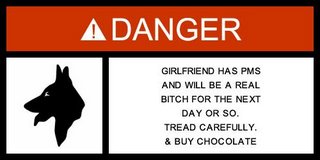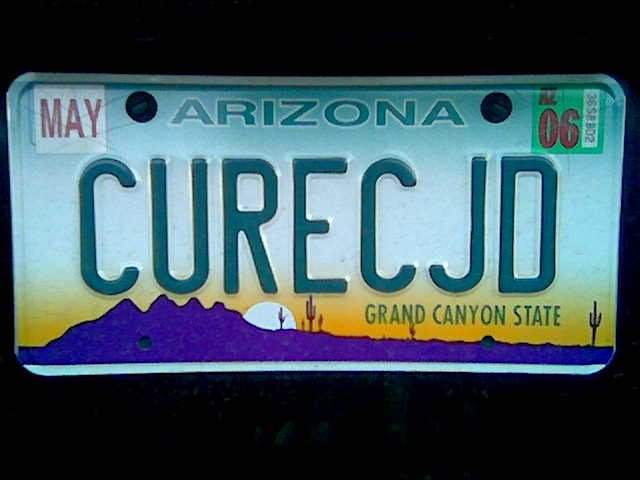I really enjoy election day. Always. Maybe it’s the promise that the campaign ads will be off my TV set.
Yes, that must be it.
I studied up and I’m ready to vote. I chose my position on
each proposition and even studied up on
the records of our judges. Then I made my picks of the
candidates running for office. I found the
KTAR and
AzCentral websites to be most helpful as I made my choices.
What if you don't like the choices of people (hoodlums) (weasels) (slimeballs) (liars) running for office?Well, then I suggest you write in "Big Foot." Because there are big foot sightings in White River. I am so not making this up. Go to
AzCentral and head to the video section there.
Since I've been sick lately (see previous post), I just haven't had time to shop around an article I really wanted to get printed here. It ran in the PVCC Puma Press newspaper and really should have gone farther. I really feel it would have had I not been a) moving and b) feeling sick. So here it is, on Prop 204:
Prop 204 – Is it Hogwash?By Heather Larson
You’ve seen those “Hogwash” signs on every corner begging you to vote “no” on proposition 204, but do you actually know what they are all about? The ubiquitous signs are representative of an issue that will be making it onto the ballot this November and the question at hand is hard to pin down. It is either an issue about animal cruelty or an issue of an animal rights agenda being pushed into Arizona by anti-meat activists, depending on which side you ask. Both sides of the issue are extremely well-funded by both in and out-of-state groups and the issue is a passionate one.
The CEO Of the Arizona Humane Society, Cheryl Naumann, points to the ballot language itself for an explanation of what Proposition 204 is about. The words of the Humane Treatment of Farm Animals Act reads as follows, “A person shall not tether or confine any pig during pregnancy or any calf raised for veal, on a farm, for all or the majority of any day, in a manner that prevents such animal from lying down and fully extending his or her limbs; or turning around freely.”
Hogwash campaign chairman and Chief Administrative Officer of the Arizona Farm Bureau Federation Jim Klinker says giving animals room to turn around is not what this is really all about.
“Their arguments are hogwash. There is no science behind it. The American Veterinary Medical Association says that hogs in stalls are more healthy sometimes because this prevents fighting between pigs.”
Naumann, a conservative republican who grew up on a Texas cattle ranch, says the Hogwash Campaigners are misinterpreting the American Veterinary Medical Association’s decision on gestation crates and that the organization is heavily controlled politically by the agriculture community. Whenever the AMVA makes a decision it falls in favor of the agricultural community, according to Naumann. The decision Naumann speaks of is one in which she says the Association wouldn’t take a stand against the gestation crates in question but said simply that all forms of housing animals have inherent problems and need to be studied more closely. While there are over 100 Arizona veterinarians who say the crates are inhumane, there are veterinarians who support the Hogwash campaign as well.
Klinker says the passing of this proposition would put small family farmers out of business, but Naumann insists the proposition supports the Arizona tradition of family farming and that this is only about requiring animals have the ability to turn around, lie down and extend their limbs. Proponents of 204 say anything other than that is animal cruelty. This is where “cruelty” is open to interpretation. Klinker says the science is on the side of the farmers and ranchers in the state.
“We’re not treating animals cruelly…that is our livelihood. We don’t get anywhere treating our animals cruelly. Their issue is they’re anti-meat, anti-confinement of animals and anti-slaughter,” says Klinker.
He also states that when this same legislation was passed in 2002 in Florida, it put two small family hog operations out of business. This is untrue, according to Naumann, who points out a 2002 article in the Orlando Sun-Sentinel where Rod Hemphill, the Gainesville, Florida Farm Bureau spokesman, said those two farms closed because of low prices and not the amendment.
But the story of the Florida farmers is one fresh in the minds of farmers based here in Arizona as election day approaches. Bill McLaughlin breeds 168 cattle for roping in Buckeye also fears this will put small Arizona farmers like him out of business because if 204 passes here, the same legislation would move on to the next state. He also fears the next target would be feed yards and small producers, thus beginning a sort of slippery slope effect.
“Does this crack a door? Yes, it does,” says McLaughlin.
Bas Aja, the Executive Vice President of the Arizona Cattle Feeders Association and a man who grew up on ranches from Arizona to Idaho says Prop 204 was brought in by two out-of-state animal rights groups, Farm Sanctuary and the Humane Society of the U.S. who don’t raise and care for animals, nor do they even recognize animal husbandry.
“It’s a clever ploy to take one little angle of production and generate noise about modern agriculture,” Aja says.
Proposition 204 is a proposition that’s on the ballot for election day this year where a “yes” vote makes gestation crates for sows illegal and a “no” vote allows the status quo to continue. That status quo really only applies to the Farmer John hog operation in Snowflake, home to around 16,000 sows who are kept in gestation crates, according to Naumann.
Pigs for Farmer John, or PFFJ, could not be reached at press time.
Naumann says the press hasn’t been allowed into the facility to take photographs of conditions there because the facility has nothing to gain by allowing the press inside with cameras. Aja says that is because doing so would be a biosecurity risk to the hogs, but he adds that he has seen the facility before.
“They are the best cared-for and kept animals I’ve ever seen anywhere in my life,” says Aja.
Klinker says the photo you see accompanying this article was taken at PFFJ. The photo was obtained through Ian Calkins at the public relations firm working on the Hogwash campaign, Copper State Consulting. Calkins says this is a photo of a worker in a pen and that animal stalls can be seen in the background. Naumann says the pens and stalls in the PFFJ photo are fine and aren’t the gestation crates that this piece of legislation is trying to ban. The Hogwash campaigners say the gestation crate photos obtained through the Arizona Humane Society were not taken in Arizona.
Though the language in 204 applies to the veal industry in addition to the pork industry, there is presently no veal industry in the state. Those against 204 don’t know why the proponents of the measure are attacking an industry that doesn’t even exist here.
“The law specifies clearly what the regulations are in Arizona so veal farmers moving here can look at standards and come into compliance immediately,” says Naumann.
If 204 passes this November, the law wouldn’t go into effect until 2013. While the pro-204 side says it is cruel for animals not to be permitted to turn around within their housing, Aja gives a specific reason as to why the pregnant hogs aren’t allowed to turn around.
“In gestation crates, animals are fed on one side of the crate. If they turn around, they will defecate in their feed,” says Aja.
So goes the campaign both for and against Proposition 204. The pro side says animals raised for food deserve some baseline for humane care while the con side says they are doing nothing cruel to the animals that serve as their livelihood.
Naumann says there is language in the ballot measure that makes an exemption to farrowing crates for sows. The entire purpose of these crates and the gestation crates is to prevent the sow from rolling over onto her piglets. But with a farrowing crate, the hog can lay on her side as the piglets can still stick their heads through a set of bars to nurse.
“We made an exception in the law for farrowing crates because we don’t want the piglets to be crushed for Godsakes!” says Naumann.
The issue of disease is one that also comes up with the issue of Proposition 204. Nauman says the science is on the side of the legislation because while gestation crates allow farmers to pack more animals into a building so they can increase profits, this packing a large amount of animals into a tight space also presents a danger because this is more likely to pass disease. Diseases are more rampant in industrialized farms rather than traditional farms. But Klinker points to the World Health Organization, which says that animals in confinement are less of a risk.
He insists that modern operations are clean and healthy, which is echoed by Aja who stands by the practices of PFFJ in Snowflake. Klinker also points out that the sows at PFFJ are managed by a veterinarian who takes offense when proponents of 204 says his animals are treated inhumanely. He also says this farm is exactly the type of place where he would want his food produced.
Naumann stands by the language on the ballot and says we have to eliminate gestation crates because they are extreme forms of confinement and just aren’t a traditional farming practice. She adds that the largest pork producer in the U.S., Niman Ranch in Oakland, California, doesn’t use gestation crates at all because the ranch sees them as inhumane.
She also insists this isn’t an anti-meat agenda and that the Arizona Humane Society only tackles animal welfare issues that affect our state. She maintains the Humane Society is not an animal rights organization but an animal welfare organization that only picks the most aggressive issues to tackle.
“It’s a moral issue of how much will we as a society allow an organization to do in the name of profits,” says Naumann.
###


















